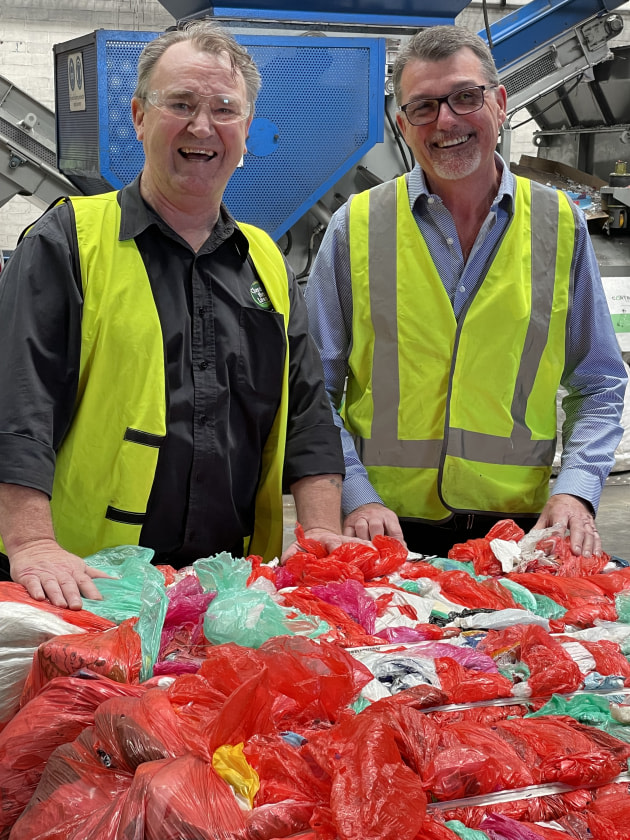Close the Loop Group (CLG) has called for urgent industry-wide solutions to address the looming plastic waste and landfill crisis, in light of the federal government’s second round of plastics export bans that came into effect on 1 July.
From that date, it is now illegal for companies and organisations in Australia to export mixed waste plastics, unless it has been sorted into a single resin or polymer type, further processed into flakes or pellets, or combined with other materials into an engineered fuel. A plastic waste export licence is also required.

The export ban is expected to further increase the strain on Australia’s recycling and landfill capacity, with about 300,000 tonnes of soft plastic already landfilled every year.
In addition to creating an environmental hazard, the landfilling of soft plastics is a waste of valuable resources, which can instead be reused and repurposed into other products.
According to Joe Foster, CLG CEO, drastically decreasing Australia’s use of single-use plastics is no longer enough.
“While CLG welcomes the banning of mixed waste plastics from export, the Australian industry now needs to quickly create and implement more industry-wide product stewardship schemes, which will allow plastic products to be collected, and then reused, recycled or remanufactured into other products,” he said.
“This waste plastic is no longer out of sight, out of mind, it’s staying in our collective backyard.”
Foster believes that although regulation provides the appropriate framework, we are a long way from the Australian industry operating as an efficient circular economy.
“We need better coordination between manufacturers, importers, distributors, brand owners and retail chains throughout the whole product process – from design and development through to end-of-life product management,” Foster added.
“These schemes would also improve data collection to determine more accurately what is actually being recycled, and where further action is needed.
“And if Australia is to achieve its ambitious government target of 100 per cent recyclable, reusable or compostable packaging by 2025, then the industry needs to be creating and using more packaging from recycled single polymer plastics, improving local packaging-to-packaging capability, and supporting circular economy partnerships.
“Industry-wide initiatives will also help grow local jobs, increase sector innovation, and reduce our dependence on imported fossil fuel-derived plastic.”
The good news is there are already several examples of circular economy collaboration is occurring, including two examples from Close the Loop and REDcycle:
- The creation of Tonerplas, Close the Loop’s award-winning asphalt additive, which uses consumer waste soft plastics and toner from old printer cartridges, and other inputs to create a key ingredient used in roads that last longer, and require less maintenance than traditional asphalt. Designed to be mixed with asphalt, it improves the mechanical properties of the road leading to improved durability and a reduced carbon footprint.
- rFlex injection-moulded plastic products, in which waste soft plastics from supermarket customers are made into a variety of products and commodities.







